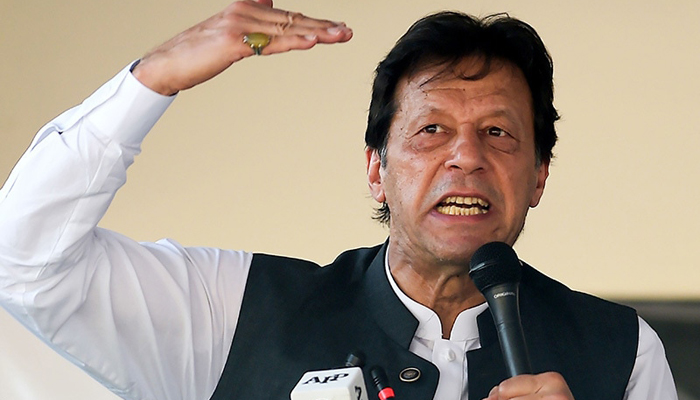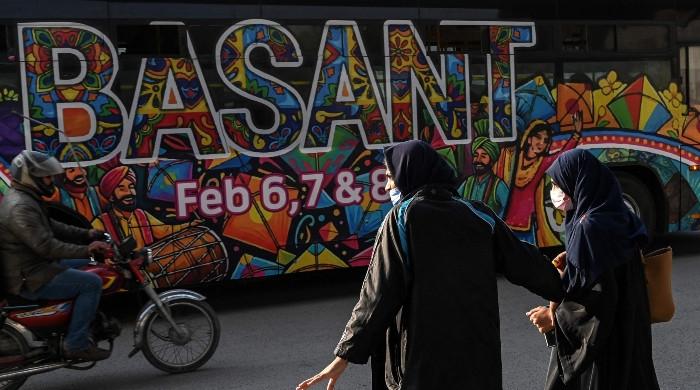Missing the forest for the trees
The state should realise that it has the full power to appoint aides and defend the move as long as it is backed by legislative fiat
July 23, 2020

Sometimes you wonder whether the idiom “This is the hill I want to die on” was invented for Prime Minister Imran Khan, particularly when he was in his halcyon opposition days.
The Pakistan Tehreek-e-Insaf’s (PTI) pre-election manifestos consisted of uncompromising, principled stands on virtually all facets of statecraft, promising a new dawn of transparency and egalitarianism.
Their governance so far been the inverse, with reneged promises and volte face on policy decisions. So much so that they ought to consider trademarking intellectual rights on the expression “U-turn”.
One such principled clarion call was the issue of public officials holding dual nationalities. A bugbear (among many) of the prime minister has been that dual nationals in public positions would not be invested in or exhibit fealty to the state and that local talent should always be preferred over them for such posts. This was until the PTI government itself published details of the assets and nationalities of special assistants to the prime minister on the cabinet division website, which revealed that four out of 15 held citizenships of other lands.
The indignation came thick and fast.
The opposition thundered that it would take this issue up at a parliamentary and judicial level, a road that has been traversed many times before. Previously, Shujaat Azeem, the special assistant on aviation in the PML-N government, resigned when the Supreme Court took exception to his dual nationality.
The criticism is a straw man, not just because it is archaic in a globalised world to insist that dual citizenship holders are somehow less loyal or less invested, but also because it reductively ignores the larger issues of the lack of transparency in the appointment of aides and their terms and conditions as per our current legal regime.
First, the legal position. The special assistants are obliquely mentioned in a definitional clause of “Service of Pakistan” under Article 260 of the Constitution. Additionally, The Rules of Business, 1973, envisage discretionary powers to the prime minister in the appointment of special assistants and provide that their terms and conditions of service may only be determined in consultation with the cabinet division.
However, the Constitution and the Rules are silent on the procedures regarding appointment procedures and provide no criteria for their terms and conditions of employment. There is also no express constitutional bar on their dual nationality, unlike parliamentarians. Even otherwise, it is a trite understanding that anything that is not expressly prohibited under the constitution and the law, is allowed.
So, does the above mean that President Donald J. Trump can theoretically be a special assistant under the current dispensation, as rather boldly asserted by a sitting aide in the PTI government?
Not quite, but let’s get the obvious out of the way first.
If meaningful expertise is available outside of the shores of Pakistan, it needs to be availed by the state. To that end, why restrict it to dual nationals? Why not hire foreigners even, as long as they demonstrate proficiency on a particular subject? India has liberally employed foreign consultants to support flagship initiatives of the government, including Digital India, Clean India and the smart cities programme.
Individual states have also enlisted private foreign support for their own projects. McKinsey — an American management consulting firm — is helping the state of Andhra Pradesh design a new capital city. Foreign consultants like BCG and AT Kearny are leading India’s COVID-19 crisis response, helping with resource gathering, data analytics and economic planning.
There are obvious concerns that special assistants or other dual nationals occupying positions in the service of Pakistan may have access to information which may be sensitive or privileged in nature.
This critique can be summarised to a lack of transparency in the appointments of the assistants. The Rules of Business provide blanket power to the prime minister and the cabinet division to appoint a special assistant, but as the Supreme Court has held in its seminal judgment of Mustafa Impex vs The Government of Pakistan [2016 PTD 2269], the Rules do not empower the executive to enact legislative measures; such power can only be exercised through subordinate legislation.
In other words, it’s simply not enough for the cabinet division to declare that special assistants have been appointed under the Rules and wash its hands from further legislative engagement in the process.
Special assistants come within the purview of Service of Pakistan as per the Constitution. Any individual under the Service of Pakistan is amenable to the constitutional jurisdiction of the superior courts. If a framework for special assistants is not formulated by the legislature, then it will ultimately take shape in our judicial corridors, which is the final port of call, in such matters.
The Supreme Court has thus far exercised judicial restraint in these issues. In a suo moto case reported as [PLD 2019 SC 133], involving dual nationals in public offices, the Court passed the baton to the parliament to procedurally consider if and how dual nationals need to be excluded from government service for reasons of safeguarding national security and to create negative lists of posts within government service, where certain citizens or their spouses should not be appointed, if they hold dual nationalities.
In addition to the above, the Supreme Court, through its registrar, has recently also refused to entertain judicial challenges to the appointment of special assistants on the basis that such petitions do not appear to carry any questions of public importance.
The apex court’s reticence should not be construed by the government to be perpetual; there is no guarantee that similar petitions may not be entertained in the future, and that may lead to adverse orders against special assistants and significantly, may force the Supreme Court’s hand to engage in judicialisation of such legislation, something that it has not shied away from in the past.
More pertinently, the state should realise that it has the full power and authority to make such appointments and defend them as long as they are backed by some legislative fiat.
Such a framework can also free the state up in eschewing mediocrity and employing bona fide experts of the industry, who could make a real difference in building policies and systems that may be co-opted and learnt by our local talent. In this respect, objections such as certain aides are the prime minister’s close friends, would become irrelevant if they fulfil the criteria of appointment as prescribed and are able to defend challenges to it.
As an example, Jared Kushner is President Donald Trump’s de-facto Chief of Staff, who many former White House Officials consider the de-facto President. The nepotistic nature of the appointment aside, it has remained unchallenged because the USA’s administrative laws allow for it.
Administrative and legislative processes take their own sweet time in our land. A significant amount of ink has been spilled through the judgments of our superior courts, restraining prime ministers from behaving like monarchs, voiding orders that are merely rubber stamping a chief minister’s whim and invalidating regulatory appointments that have reeked of nepotism and fail even the basic objective criteria of fairness and reason. All these steps are necessary and essential in the evolution of the trichotomy of powers between the executive, the legislature and the judiciary.
The state wields all the power; it must be willing to demonstrate that it wields it fairly.
Ali is a barrister in Lahore. He tweets at @RezaAli1980











